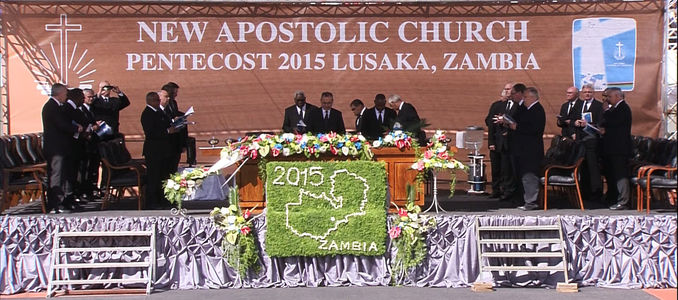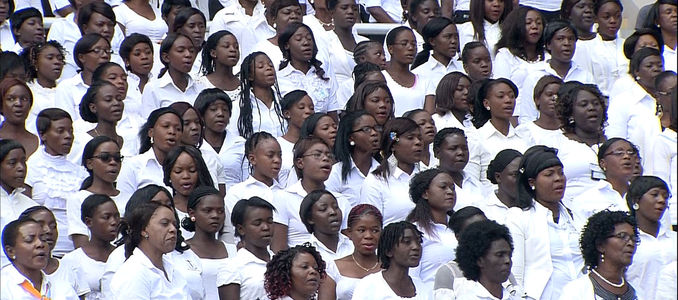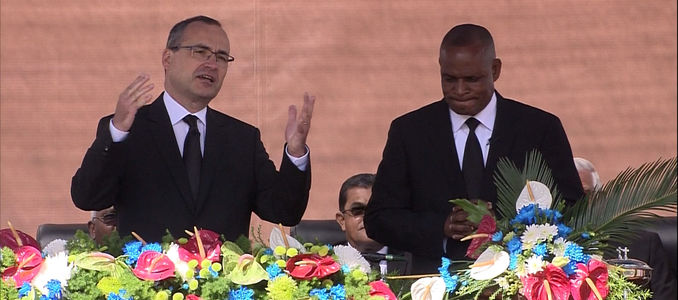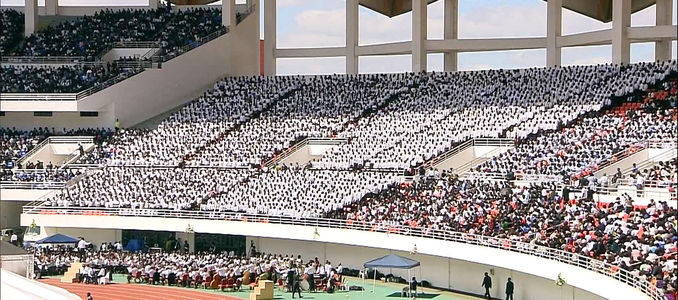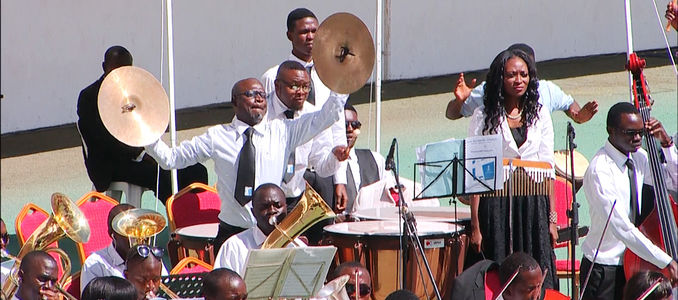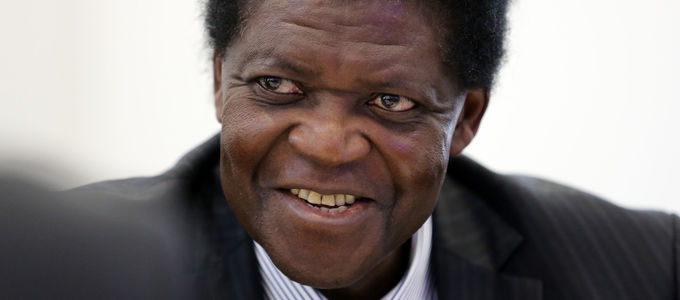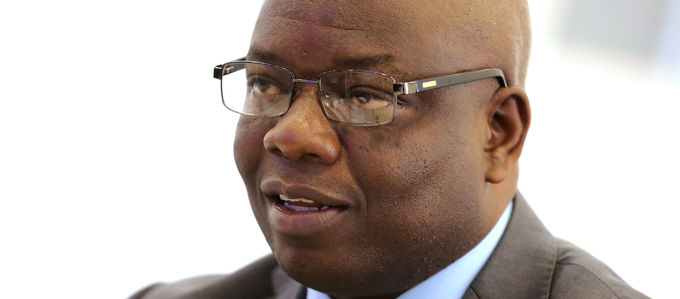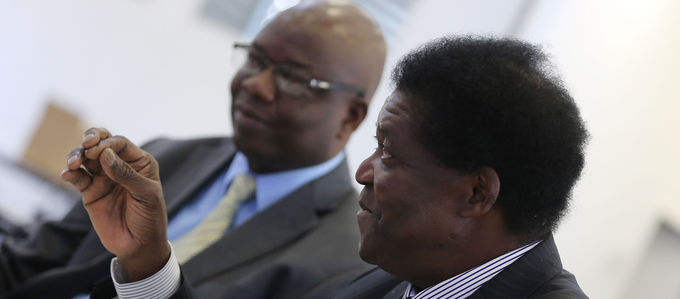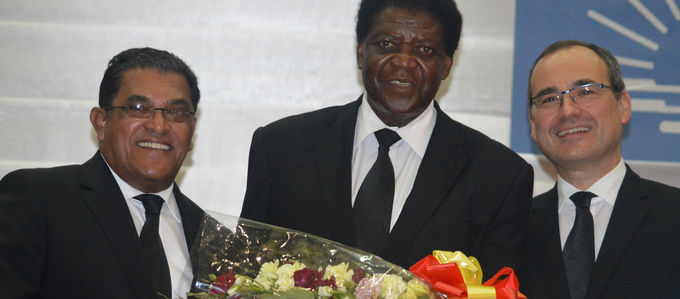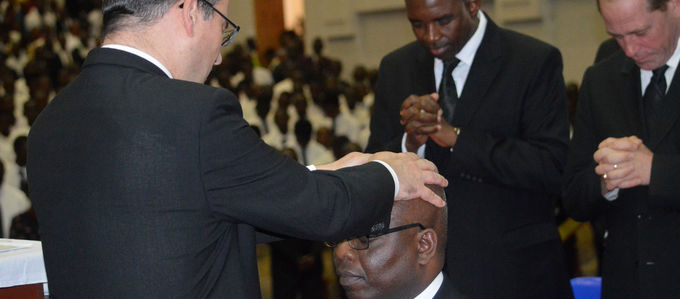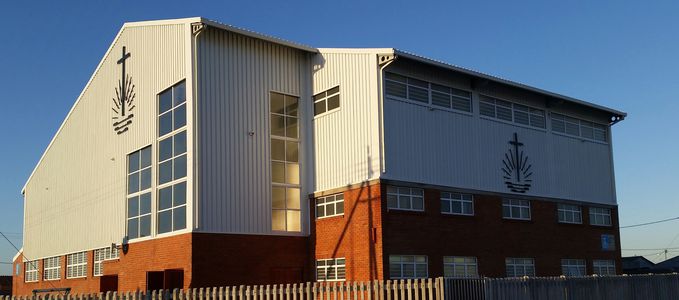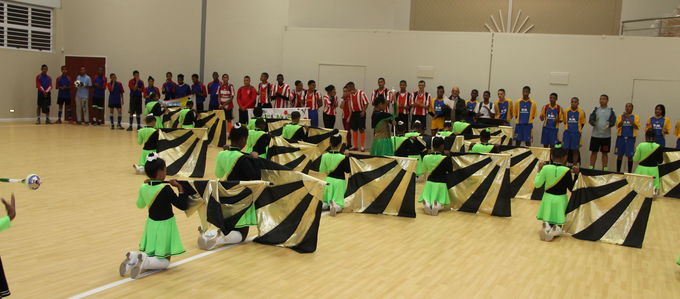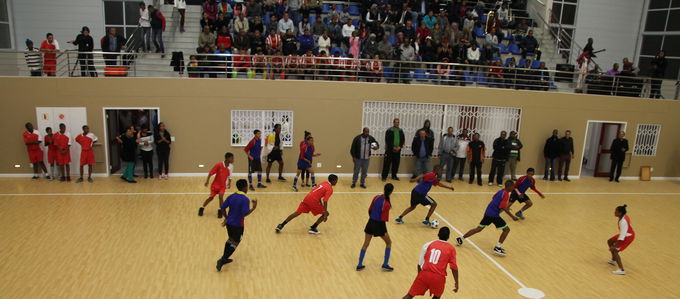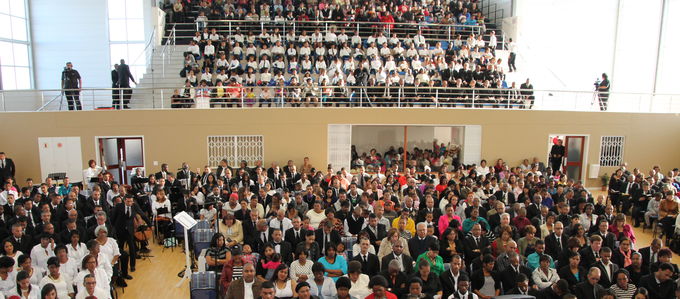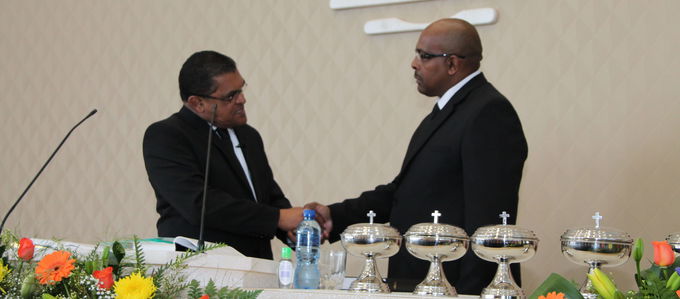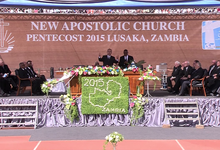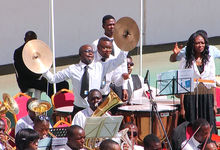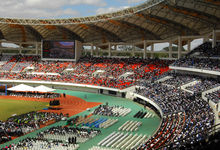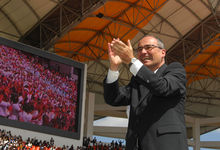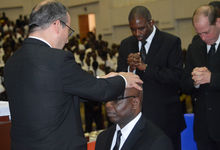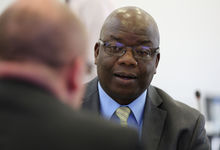Africa inspires with music and surprises with church construction
Youth development of a different kind, generational change in leadership, and a celebration of faith with a whole lot of “paaaahhhhh”: such was the year 2015 in Africa. The continent with the most New Apostolic Christians in the world opens our series of annual reviews here on nac.today.
“Paaaahhhhh”—anything that excites Timothy Chirwa gets this response from the 35-year-old. The reason for this goes back to the celebration of Pentecost 2015 in Zambia: during the musical finale of the central divine service, the musician clanged the cymbals together so enthusiastically that his joy ignited that of many other members in congregations around the world.
Pentecost in Zambia
This year’s was a special celebration of Pentecost: the New Apostolic Church of Zambia, with over a million members, put its best foot forward with a great deal of joy, conviction, and commitment. It was impossible to miss the pride of our members there in belonging to this Church: the ladies wore scarves, T-shirts, or hats bearing the NAC emblem, and many of the gentlemen wore black suits.
And then there was the music: a distinctive culture, powerful numbers, and terrific artists. The strongest hymns to make their way over the ether were those sung in Bemba, Lozi, or Swahili. The organization was perfect—and problems were handled masterfully, for example, when the diesel generator broke down on the arrival of the Outside Broadcast Vehicle, or when the live transmission suddenly stopped in the Congo. One way or another, help was quickly dispatched.
The highlight of the event was the divine service on Pentecost Sunday, which united hundreds of thousands of New Apostolic Christians around the globe. “Let us trust in the power of the Holy Spirit,” was the message from Chief Apostle Schneider. More on this and everything else of importance concerning the celebration of faith in Zambia can be found in the Pentecost file.
Generational change in East Africa
His professional background is in surveying—and as a minister he now has a vast field to care for: Joseph Opemba Ekhuya was ordained District Apostle for East Africa in April. He thus succeeded Shadreck Lubasi, who had led the independent working area consisting of the countries of Kenya, Tanzania, and Uganda since its establishment in the year 2009. The two of them looked back over the past and ahead to the future in an interview nac.today.
A change in leadership was also announced for the South African District Church of the Cape. Apostle John Leslie Kriel was appointed a District Apostle Helper in December. He is to succeed Noel Edward Barnes—who has since 1996 led the working area incorporating the Western, Eastern, and Northern Cape Province of the Republic of South Africa, as well as the country of Namibia, the Falkland Islands, and the Isle of St. Helena—in the District Apostle ministry.
District Apostle Rainer Storck called the appointment of a helper for the country of Angola a “decision for the future”. This task was entrusted to the care of Apostle João Uanuque Misselo in February.
Youth development in the Cape
Sunday School in as many congregations as possible—this was one of the goals that Chief Apostle Jean-Luc Schneider announced at the meeting of African Apostles on Pentecost. And this was also one of the top subjects in the District Church of the Cape. This topic was also the emphasis of a large “Rectors’ Day” convened by the District Apostle in June in the Zambezi region of Namibia. And a presentation at a similar event for vast regions of South Africa’s Caperegion in September also dealt with this subject.
Youth development of a different kind is being offered in the South African congregation of Leiden Central. It was there that likely one of the most unusual New Apostolic church buildings in the world was dedicated this past year. The structure, which serves as a church on Sundays, can be used as a sports hall and meeting place during the week. With this building, District Apostle Barnes not only plans to offer the brothers and sisters, but also any interested neighbours, a “safe haven” in the middle of the crime-ridden neighbourhood of Delft.
Article info
Author:
Date:
Keywords:
Andreas Rother
26.12.2015
Africa,
Kenya,
Namibia,
Zambia,
South Africa,
Tanzania,
Uganda,
District Apostle,
Pentecost,
Structure,
Personal data,
Social commitment,
Music,
Congregational life,
People/Personalities



